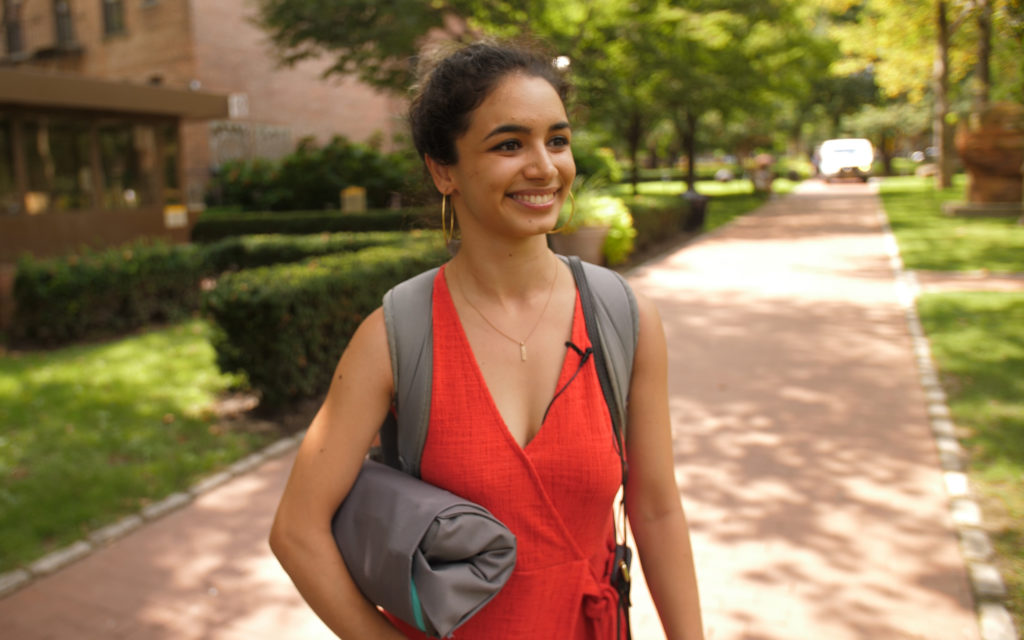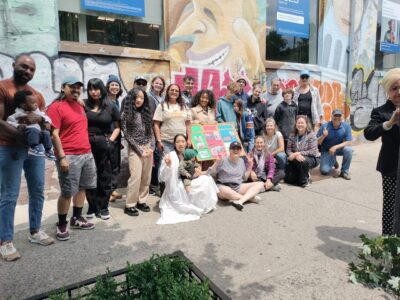BEDFORD-STUYVESANT — Inspired by her own experience with epilepsy, Bedford-Stuyvesant resident Uma Smith has invented a portable first aid kit and safe space for use during epileptic seizures that has won recognition in a design competition sponsored by a prestigious international foundation.
Smith’s invention, Cocoon, is the American national winner of the James Dyson Award.
The awards, according to the James Dyson Foundation website, “celebrate, encourage and inspire the next generation of design engineers,” and are “open to current and recent design engineering students.”
All of the winners and runners-up from countries around the world were announced on Thursday, Sept. 19.
Cocoon is a pillow that protects the user’s head, alerts emergency contacts to the onset of a seizure and tells bystanders how they can help.
Smith, a recent Pratt Institute graduate, was diagnosed at age 11 with epilepsy and has been hospitalized four times since for seizures, three of which took place away from home and away from caretakers who could help.
“I started looking for epileptic safe spaces, so I could be on the subway or whatever and I wouldn’t have to be worried about, ‘What’s a good place to have a seizure?’” she said.
Smith found smart watches online that could detect a seizure and alert caretakers, and protective devices like headgear or anti-suffocation pillows, but nothing compact that fulfilled both functions.
At Pratt, she started working on a pillow with a mesh covering to stabilize and protect the user’s head. Sensors within the device alert caretakers when the pillow is in use and shares with them the GPS coordinates.
Cocoon also times the seizure and calls an ambulance if it exceeds five minutes, the threshold at which experts say neurological damage is a concern. Two flaps fold out from the pillow with instructions for bystanders. When not in use, Cocoon rolls up into a 1-foot x 4-inch package that fits easily into a purse or briefcase.
“I wanted to create something that would combine all features and allow people with epilepsy to live more independent lives,” said Smith.

Now Smith carries her Cocoon prototype with her whenever she has epileptic triggers — for her, sleep deprivation and stress — and no longer has to scope out her surroundings for a safe place to have a seizure.
As the U.S. winner of the James Dyson Award, Smith will receive $2,500 and advance to the international round of the competition, judged first by Dyson company engineers who will whittle the list of national winners down to a short list, and eventually by James Dyson, the British inventor perhaps best known for his innovative vacuums. Should Smith win the international competition, which will be announced Nov. 14, she’ll receive $35,000.
Whether Cocoon makes it all the way or not, Smith hopes to license the design to a company that can help her manufacture the device and get it on the market.
“I really do want to make it a reality,” she said. “I think it’s filling a necessary space in the market and I want to get it into the hands of the people that need them.”

 Man arrested after hit-and-run killed two in Sunset Park
Man arrested after hit-and-run killed two in Sunset Park  Sunset Park residents look to form new mural at 54th Street
Sunset Park residents look to form new mural at 54th Street